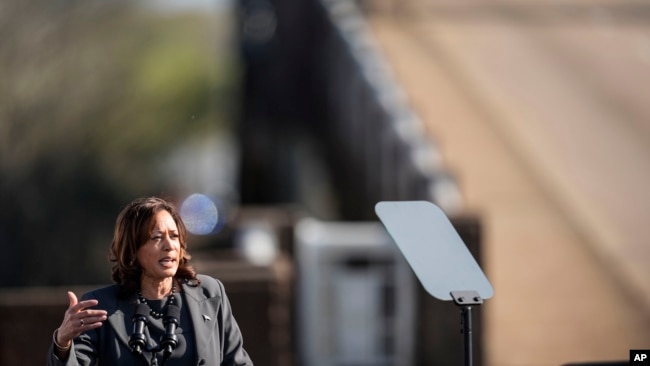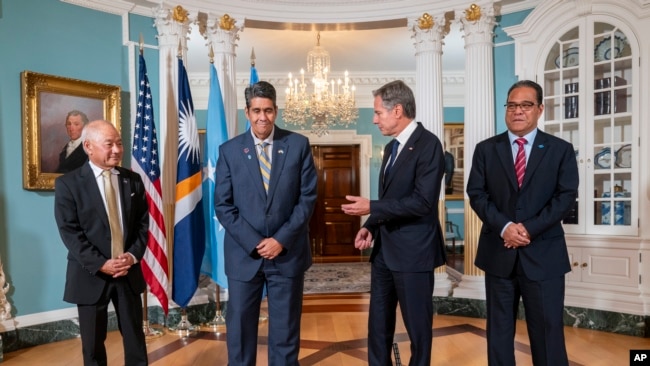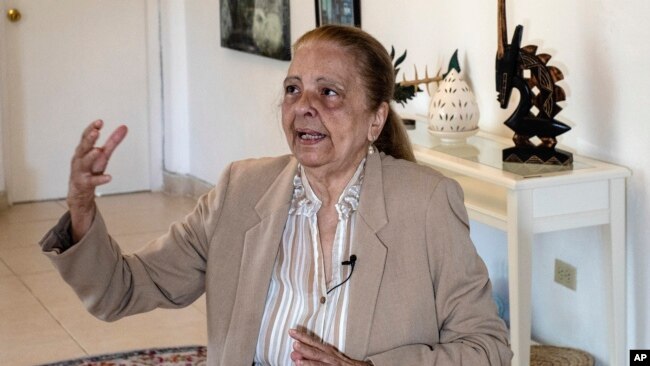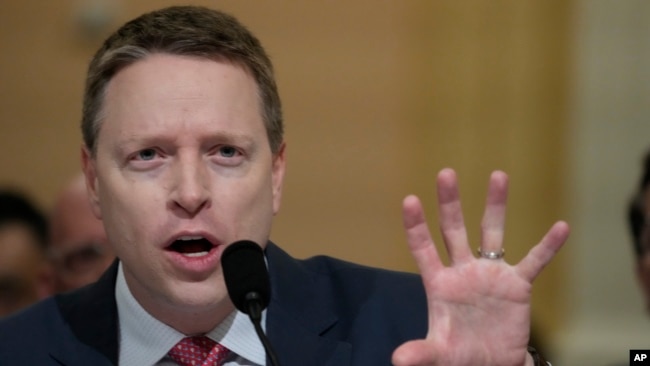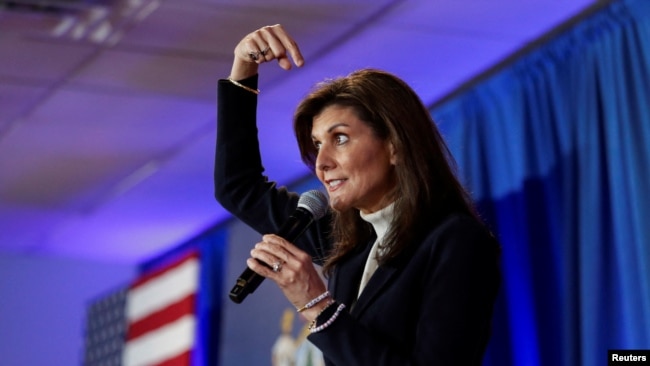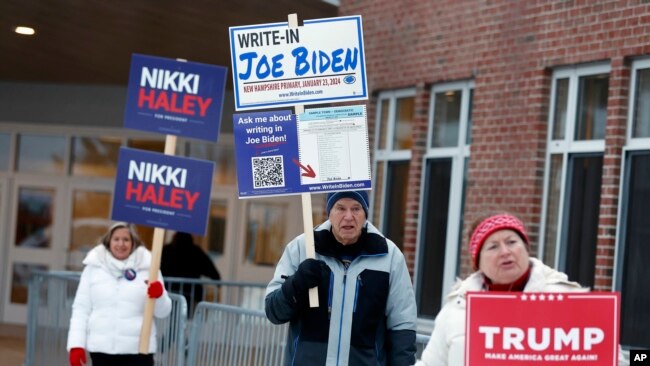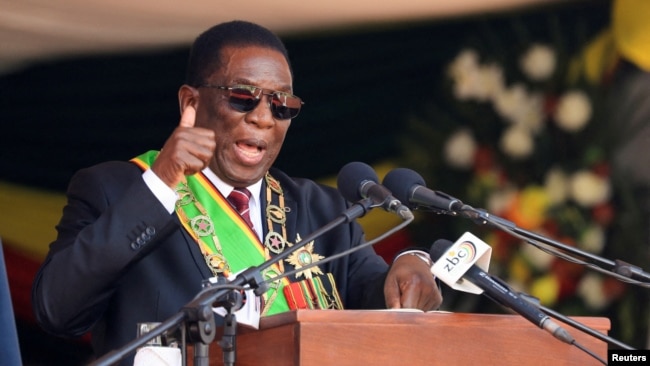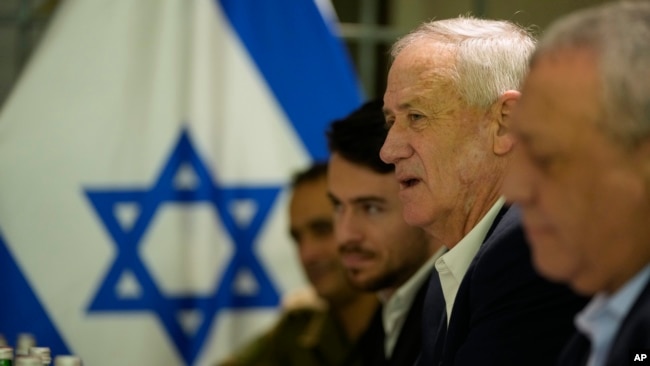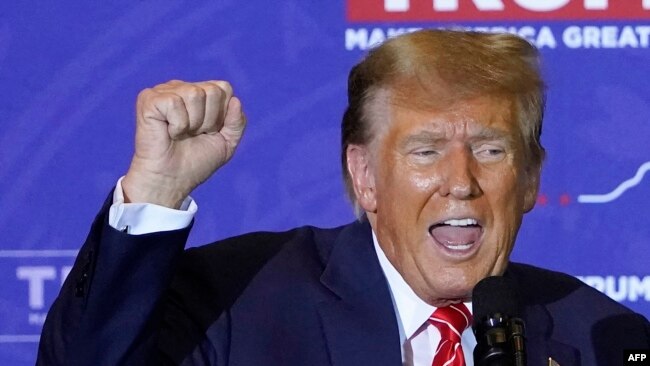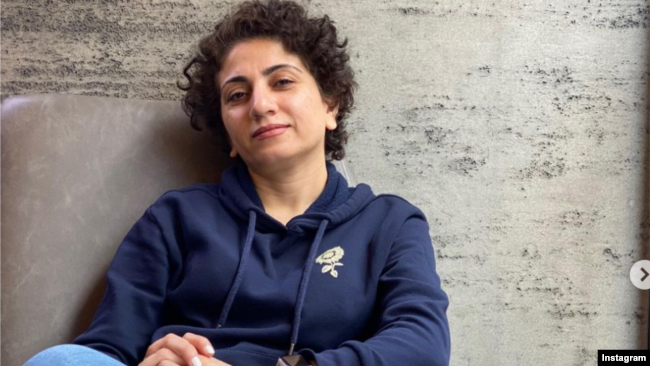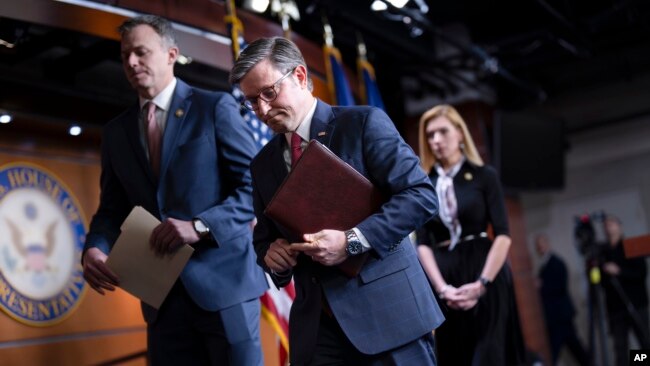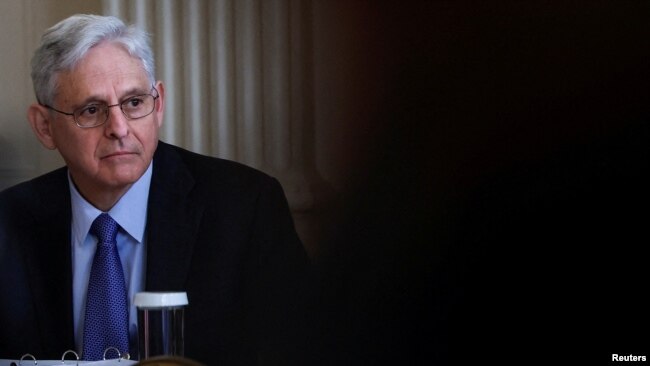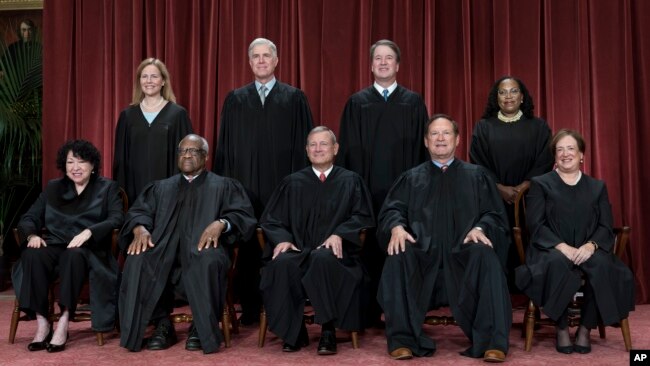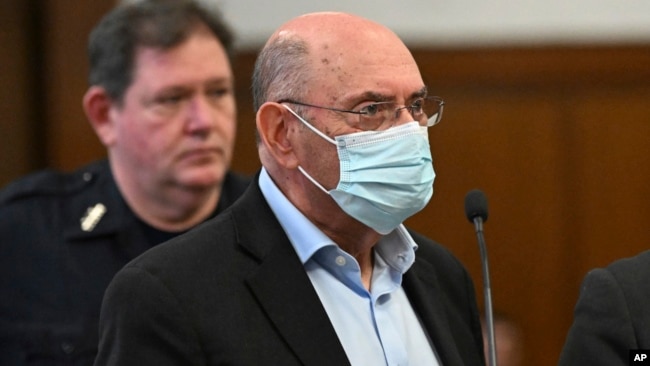타이 무역대표부, 정상회담 종료 후 아프리카 통상정책 논의
US Trade Envoy Tai Talks Trade Policy in Africa as Summit Ends
페이지 정보
작성자 Kate Bartlett 작성일 23-11-04 17:14 댓글 0본문
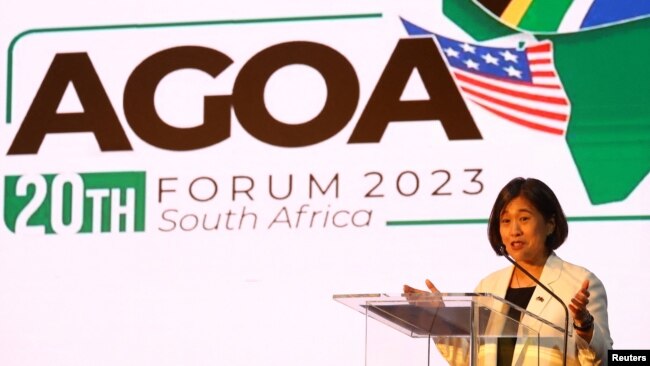
캐서린 타이 미국 무역대표부 대사가 2023년 11월 3일 남아프리카 요하네스버그 NASREC 컨퍼런스 센터에서 열린 아프리카 성장과 기회법의 미래를 논의하기 위한 미국-사하라 아프리카 무역 포럼에서 연설하고 있습니다
U.S. Trade Representative Ambassador Katherine Tai speaks during the U.S.-sub-Saharan Africa trade forum to discuss the future of the African Growth and Opportunity Act at the NASREC conference center in Johannesburg, South Africa, Nov. 3, 2023
요하네스버그 —
johannesburg —
2000년 이후 자격을 갖춘 사하라 사막 이남의 아프리카 국가들에게 미국 경제에 대한 면세 접근권을 제공해 온 프로그램인 아프리카 성장 및 기회법의 연례 정상회담이 토요일 남아프리카 공화국에서 막을 내렸습니다.
The annual summit of the African Growth and Opportunity Act — a program that has provided eligible sub-Saharan African countries with duty-free access to the U.S. economy since 2000 — wrapped up in South Africa on Saturday.
AGOA에 따르면, 미국으로의 총 상품 수입은 2021년 68억 달러에 비해 2022년에는 약 100억 달러의 가치가 있었습니다. 아프리카 지도자들은 2025년 무역 정책이 만료되기 전에 10년 이상 더 무역 정책을 갱신할 것을 미 의회에 요구하고 있습니다.
Under AGOA, total goods imports into the United States were worth about $10 billion in 2022, compared with $6.8 billion in 2021. African leaders are asking the U.S. Congress to renew the trade policy for another 10 years or more before it expires in 2025.
AGOA 자격을 얻기 위해서는 국가들이 법치를 존중하고 인권을 보호해야 합니다. 월요일 조 바이든 미국 대통령은 쿠데타로 니제르와 가봉, 인권 침해로 중앙아프리카공화국과 우간다 등 4개국이 AGOA에서 탈퇴할 것이라고 말했습니다.
To be eligible for AGOA, nations must respect the rule of law and protect human rights. On Monday, U.S. President Joe Biden said four countries would be dropped from AGOA: Niger and Gabon for coup d'etats, and the Central African Republic and Uganda for human rights violations.
캐서린 타이 미 무역대표부 대표는 토요일 AGOA의 미래에 대한 질문에 답변하기 위해 여러 기자들과 함께 자리를 잡았습니다. 간결하고 명확하게 하기 위해 다음 대화록이 편집되었습니다:
On Saturday, U.S. Trade Representative Katherine Tai sat down with several reporters to answer questions about AGOA's future. The following transcript has been edited for brevity and clarity:
미국의 소리: 중국은 아프리카의 가장 큰 무역 상대국입니다. 미국은 어떻게 경쟁할 수 있으며 아프리카와의 무역에 대한 두 나라의 접근법은 어떻게 다를까요?
VOA: China is Africa's largest trade partner; how can the U.S. compete and how do the two countries' approaches to trade with Africa differ?
Tai Katherine Tai 미 무역대표부 대표 : 우선, 우리 관계의 기초가 무엇인지부터 시작하겠습니다. 미국과 아프리카 국가들과의 파트너십은 무엇보다도 우리 자신에 대해 매우 가치 있는 것입니다. 우리의 역사적 유대관계, 국민 대 국민의 유대관계, 미국이 과거 식민지 시대에서 성장했다는 사실, 그리고 문화와 역사를 공유하는 많은 지점들이 있습니다. 그것이 바로 우리 파트너십의 초석입니다.
U.S. Trade Representative Katherine Tai: Let me start … with what the basis for our relationship is, which is that the U.S. partnership with the countries of Africa is inherently valuable vis-à-vis ourselves, first and foremost. Our historical ties, our people-to-people ties, the fact that the United States grew out of our own colonial past, there are so many points of shared cultural, historical narrative. That is the cornerstone of our partnership.
그 밖에, 우리는 아프리카의 인구통계를 봅니다. … 2050년까지, 지구상의 인간 네 명 중 한 명은 아프리카인이 될 것입니다. 그리고 나서 여러분은 아프리카 인구의 중위연령을 보고, 그것을 다른 곳의 중위연령과 비교하면 미래는 아프리카라는 것을 알게 됩니다. 아프리카의 잠재력, 인간의 잠재력, 경제적 잠재력, 이것은 우리가 미래를 위해 우리 자신의 길을 계획하는 것은 반드시 아프리카와의 협력관계를 포함한다는 것을 아는 또 다른 이유입니다. 그래서, 우리가 여기에 있는 이유가 있습니다.
Beyond that, we look at the demographics of Africa. … By the year 2050, one in four human beings on this planet will be African. Then you look at the median age of the population in Africa and you compare it to the median age in different places and you realize that the future is Africa. The potential — human potential, the economic potential — of Africa, that is another reason why we know that charting our own path for the future necessarily involves partnership with Africa. So, there is the reason why we are here.
이와 별개로 중국에 대한 질문으로 넘어가겠습니다. 네, 무역면에서 중국이 세계경제에서 차지하는 위상은 엄청납니다. 세계 각국의 많은 대화에서도 그렇습니다. 우리는 미국이 가져올 수 있는 파트너십의 형태가 다른 파트너들과 본질적으로 다르다는 것을 매우 강하게 느끼고 있으며, 그래서 아프리카와의 파트너십을 강화하고 구축하는 데 주력하고 있다고 생각합니다.
Separately, let me turn to your question on China. Yes, China's footprint in the global economy in terms of trade is enormous. We know that; that is true in many of our conversations around the world. We feel very strongly that the type of partnership the United States brings and can bring is inherently different from what other partners bring and that is why we are focused on enhancing and building on a U.S. partnership with Africa.
타이 대사는 미국과 아프리카 국가들의 관계에 관한 다른 기자들의 질문에 이같이 답했습니다.
Tai addressed other reporters’ questions regarding the U.S. relationship with countries in Africa.
어제 한 아프리카 국가 대표가 '서구 민주주의가 아프리카에 강요되는 것을 원치 않는다'고 했는데 어떻게 대처하나?
Q: Yesterday, a representative of an African country told me 'We don't want Western democracy imposed on Africa.' How do you cope with this?
타이: 분명히 민주주의에는 한 가지 형태만이 있는 것이 아니라, 우리 모두는 각자의 방식으로 민주주의를 이야기하고 있습니다. 하지만 넓게 말하면, 민주주의에 대해 이야기할 때, 여러분은 그것을 무너뜨리고, 그것은 국민들이 정부를 선택할 권리와 힘을 가지는 정부 체제에 관한 것이라고 생각합니다. … AGOA가 특정 종류의 민주주의를 규정한다고 생각하는 것이 아니라, 제가 표현한 방식은 AGOA가 권장하고자 하는 정치적, 경제적 개혁에 대한 아프리카의 해결책을 지지하기 위한 것이라고 생각합니다.
Tai: Obviously there's not just one form of democracy, we all have our versions of democracy. But broadly speaking, I think when we talk about democracy, you break it down, it's about a system of government where the people have the right and power to select their government. … I don't think AGOA dictates the specific kind of democracy, I think the way that I have phrased it is AGOA is set up to support African solutions to the political and economic reforms that AGOA's meant to encourage.
우크라이나 사태에 대한 남아프리카공화국의 태도로 인해 남아공과 미국의 관계는 어떻습니까?
Q: How is the U.S. relationship with South Africa, owing to South Africa's stance on the Ukraine crisis?
Tai: 이제 기억하세요. 저는 미국 무역대표부의 대표이고, 그래서 저는 경제정책팀의 일원입니다. 그래서 저는 미국과 남아프리카의 경제관계에 초점을 두겠습니다. 우리는 복잡해지고 있는 매우 복잡한 세상 속에 살고 있다는 것을 인정하고, 경제적인 측면에서 전반적인 관계와 보다 인간적인 차원의 관계가 강하다고 생각합니다. 그것은 저의 역량이 놓여있는 것입니다…
Tai: Now recall I'm the U.S. trade representative, so I am an economic policy team member. So let me focus on the U.S.-South Africa economic relationship. Let's acknowledge that we live in a very complex world that is only becoming more complicated. That said, I think that the relationship overall, and the relationships on a more human level, are strong, on the economic side, which is where my competency lies. …
우리 모두는 이 복잡한 세계를 어떻게 헤쳐나갈 것인가를 찾아야 할 것입니다. 그리고 저는 적어도 경제적인 측면에서 금년에는 약간의 혼란스러운 바다를 헤쳐나갔으며, 앞으로도 그럴 수 있도록 최선을 다할 것이라는 강한 자신감을 가지고 있습니다. 저는 이번 포럼에서 남아공 정부가 미국과의 경제관계에 대한 강력한 지지를 표명했다고 생각합니다.
We all need to figure out how to navigate this complex world, and I have a high degree of confidence, at least on the economic side, that we have managed to navigate some choppy waters this year and that we will continue to do our best to do so. I think the South African government, on this trip, at this forum, has indicated the strength of its support for the economic relationship with the United States.
Q: 골치 아픈 문제였고, 아프리카는 개발을 원하고 있고, 원자재를 아프리카 밖으로 계속 보내는 한 기술을 배우지는 않을 것입니다. 어떻게 보십니까?
Q: It has been a thorny issue, Africa wants to be developed, and as long as we continue to send raw materials outside of Africa, we are not going to learn the skills. What's your view?
Tai: 제가 알기로는, 아프리카와 아프리카의 국가들은 어떻게 가치사슬을 높이고 산업화를 할 수 있을까요? 그리고 저는 그것이 경제발전의 도전이라고 생각합니다. 우리 미국도 탈산업화의 시기를 겪으면서 재산업화 프로젝트에 집중하고 있기 때문에, 제가 이곳에 있는 동안 매우 흥미로운 대화를 나누었습니다.
Tai: As I understand it, you're talking about: How does Africa and the countries in Africa move up the value chain and industrialize? And I think that that is the challenge of economic development. We in the United States are focused also on a reindustrialization project, having gone through a period of deindustrialization, so it's made for a period of very interesting conversations while I've been here.
저는 그것이 우리 모두가 이해해야 할 매우 중요한 질문이라고 생각합니다. 제 직감으로는, 세계화가 발전함에 따라 진화할 필요가 있다는 것을 알았기 때문에… 세계화의 다음 반복은 지난 번의 반복보다 더 나은 작업을 수행해야 한다고 생각합니다. … 다음 번에는 선진국과 신흥국 간에 어떻게 더 효과적으로 협력하여 개발에 대한 상생의 해결책을 제공할 수 있는지를 살펴보는 개발 프로그램이 포함되어야 합니다.
I think that that is a tremendously important question that we all have to figure out. In my instincts, I feel convinced that as globalization evolves, because we see that it is needing to evolve … the next iteration of globalization should do a better job than this past one. … This next one has to involve a development program that looks at how we can more effectively partner between advanced economies and emerging economies to provide a win-win solution to development.
그리고 기본 원칙은 바이든 대통령의 전망을 받아들여 우리가 중산층을 재건하고 활성화하려고 한다면 무역정책을 통해서 어떻게 하면 서로가 중산층을 형성할 수 있도록 도울 수 있을 것이라고 생각합니다?
And I think that the basic principle is going to be, if you take President Biden's outlook, that we're trying to rebuild and reinvigorate our middle class, how through trade policy could we help each other build our middle classes?
중산층과 여러분의 중산층, 그리고 우리의 노동자들과 여러분의 노동자들을 비교하지 않고 어떻게 해야 할까요? 무역이 피 말리는 경쟁이 아닌 보완적인 활동이라는 것을 어떻게 더 생각할까요? ... 아프리카 대륙의 파트너들과 함께 이 문제를 해결하는 방법에 대해 함께 일할 수 있어서 정말, 정말 영광이었습니다.
How do we do it in a way that we're not pitting our middle class against your middle class, our workers against your workers? How do we think more about trade being a complementary exercise as opposed to a cut-throat competition? ... I have been really, really privileged to work with our partners on the African continent on how we solve that problem.
Q: 특히 공화당 의원들로부터 행정부가 집행을 잘 하지 못하고 있다고 생각하는 사람들이 있기 때문에 집행을 검토하고 싶다는 이야기를 들었습니다. 그래서 어떻게 생각하십니까?
Q: We've heard, especially from Republican members of Congress, that they are going to want to look at enforcement of eligibility because some of them have said they don't think the administration is doing a good job of implementing enforcement. So, what do you say to that?
Tai: 그들이 AGOA로부터 정확히 누구를 보류하고 싶은지는 모르지만, 매년 검토 과정이 있고, 그것은 매우 엄격한 과정입니다. 많은 심의가 진행되고 있고, 통화는 쉽지 않습니다.
Tai: I don't know who exactly else they would like to suspend from AGOA, but there is an annual review process, it is a very rigorous process ... a lot of deliberation goes into it and the calls are not easy.
(VOA가 미국 무역 담당자에게 한 가지 질문을 했다는 것을 명확히 하기 위해 이 스크립트가 재발행되었습니다.)
(This script has been re-issued to clarify that VOA asked one question of the U.S. trade representative.)
출처 : VOANews
댓글목록 0
등록된 댓글이 없습니다.


